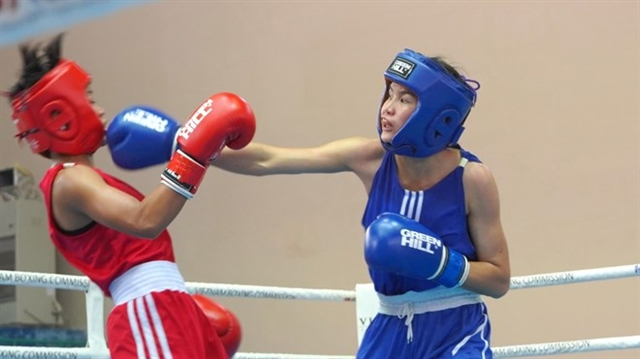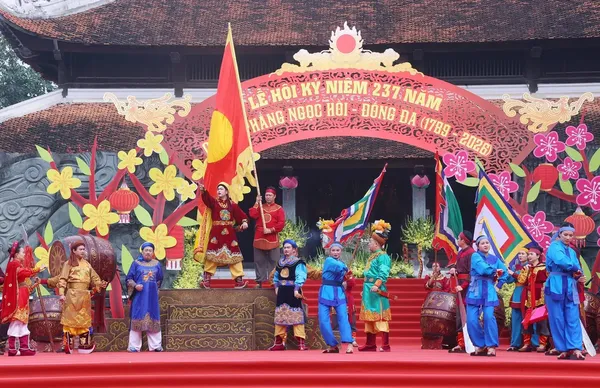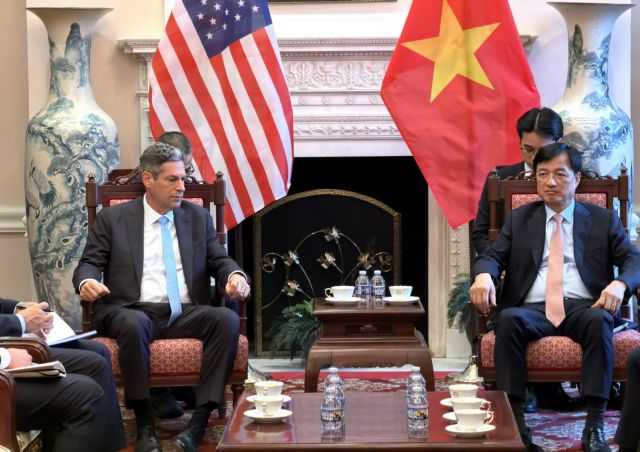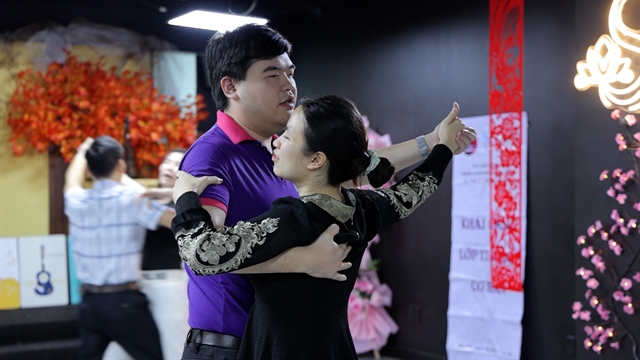 Life & Style
Life & Style

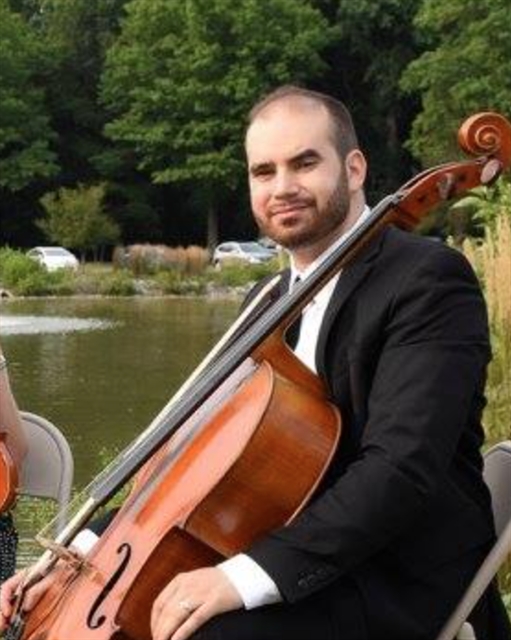 |
| Cellist Bryan Charles Wilson. Photo courtesy of the artist |
American cellist Bryan Charles Wilson will perform at a concert on July 26 at the American Center Hanoi. The concert is held to celebrate the 10th anniversary of the US - Việt Nam Comprehensive Partnership
Việt Nam News reporter Nguyễn Bình interviews the artist about the concert and his love of Vietnamese traditional instruments and music.
Could you introduce the upcoming concert?
The concert will feature an extraordinary collaboration between renowned musical artists Phạm Trà My, Ngô Trà My, Trí Minh, and myself.
Together, we will mesmerize the audience with a harmonious blend of classic Vietnamese melodies and original compositions, showcasing a unique fusion of cello, traditional Vietnamese instruments, and modern electronics.
How did you prepare for the concert?
The preparation for this concert was a delightful and collaborative journey. All the artists gathered to discuss, arrange, and practise together, with the aim of creating a dynamic and captivating performance.
Drawing from my album, Tri Âm, as well as Trí Minh’s compositions, we had a wealth of material to work with. Working alongside such talented artists was a true joy, as we effortlessly connected and vibed on a profound level.
I am truly honoured and humbled that I have this great opportunity to work with them. I know how incredibly talented they are and because of this, how busy they are with a myriad of different projects, often all over the world.
When we came into rehearsal, lots of times many of us would come in tired, but after playing music together we forged a collaborative bond that helped uplift our spirits and energy.
I couldn’t ask for better people to work with and I truly hope to continue this partnership with more artistic endeavors in the future.
The concert will feature your new album Tri Âm. What can you tell us about the album?
Tri Âm is a heartfelt tribute to Việt Nam's rich and diverse cultural heritage, reimagined through the emotive lens of the cello.
The album features beloved classics like Lòng Mẹ, Tình ca Tây Bắc, Nhật ký Của Mẹ and Mùa Xuân Đầu Tiên, infused with the resonant and soul-stirring sound of cellos.
By blending traditional Vietnamese instruments and styles with contemporary production techniques, Tri Âm offers a fresh and innovative take on ancient musical traditions.
Through this musical journey, I aim to transport listeners from the bustling streets of Hà Nội to the awe-inspiring caves of Tràng An, all while celebrating the profound beauty of Vietnamese culture through the mesmerizing voice of the cello.
This whole album was recorded while I was in America. We left Việt Nam in mid-2019 and of course quickly after, COVID hit the next year, shutting down the whole world.
Our family greatly missed the culture and music of Việt Nam and my wife smartly suggested that I do remote collaborations with Vietnamese artists.
I was fortunate enough to collaborate with many musicians including đàn bầu artist Trà My, flute artist Nguyễn Đức Minh and đàn nguyệt Tuấn Hoàng during that time.
It was really at the beginning of COVID when things were extremely dark in America, where we were afraid to leave the house for fear of dying or bringing back this disease to our family.
The music was a truly cathartic experience for me where I could focus my energy on something positive to create new and beautiful music within a culture that I loved.
This was the true genesis of the album. Tri is about being a true friend who has a deep kinesthetic understanding and connection with someone through music (âm).
You just immediately know them. You feel their energy and understand their spirit. Our connection to each other sits at the heart of our shared humanity. We know that when the world is a mess, the music is there to nourish all of us.
This is how I feel about the collaborations between the cello and Vietnamese music, especially traditional music.
Without being extremely well-versed in the technicalities of Vietnamese music, I was immediately able to connect with the musicians and bring about music that evoked true connection and joy.
Did you remember when you began a love affair with Vietnamese traditional music?
My love affair with Vietnamese traditional music blossomed during my first visit to Việt Nam when my wife and I were dating.
While the water puppets show was fascinating, what truly enchanted me was the live band of traditional musicians accompanying the performance.
Their mesmerizing sound captivated me immediately. My interest in traditional music grew further when I participated in two FAMLAB workshops, sponsored by the British Council, where we blended traditional and ethnic minority music from Việt Nam with contemporary musical elements.
I had the amazing opportunity to work with Nguyễn Nhất Lý, Nguyễn Đức Minh, and Quyền Thiện Đắc, and Trọng Đại.
These programmes taught and inspired me about how to make the connection between traditional Vietnamese music, ethnic minority music, and Western music.
You could see that no matter how far away from each other these musical cultures had developed and evolved, there were fundamental connections that tied them together.
Uncovering these bonds was a magical experience for me because it helped me not only understand these cultures but to bring about new music that encouraged a great sense of global unity.
What Vietnamese instrument do you like most? Do you want to learn to play it?
I love cải lương, đàn tranh, đàn nguyệt, but without a doubt, the đàn bầu holds a special place in my heart.
It was the instrument that captivated me during the water puppets show, with its deep, soulful, and expressive sound that resonated with me on a profound level.
Much like the cello, the đàn bầu has the power to evoke emotions that are often inaccessible in my everyday life. I was able to connect with Trà My, a professor at Việt Nam Academy of Music back in 2018 and despite her incredibly demanding schedule, she was gracious and kind enough to give me a lesson on the fundamentals of the instrument.
I have dabbled in learning to play the đàn bầu, and while I'm no master, I find that my experience with the cello gives me an advantage due to the shared requirement of a keen sense of pitch.
You have published three books, will you write a book to introduce Vietnamese traditional music?
The idea of writing a book to introduce Vietnamese traditional music is truly intriguing.
While I acknowledge that I still have much to learn about this profound musical heritage, it's an excellent concept that I will certainly consider in the future.
As I deepen my knowledge, I would be very open to writing a book that teaches Vietnamese traditional music to Western string instrumentalists, while simultaneously focusing on creating new cross-sections for improvisation and composition.
Currently, I'm working on a Vietnamese tongue twister book as a gift for my son.
The book playfully highlights the challenges of Vietnamese for non-native speakers by showcasing words that appear similar but change meaning with different intonations. My family may find it amusingly crazy, but I believe it's a fun and light-hearted project.
How is music important in your life?
Music occupies an indispensable place in my life; it's my ultimate passion and source of immense joy.
When I'm creating in the studio or performing on stage with the cello, I experience a sense of complete zen. For me, music serves as a profound connection to something beyond words - almost spiritual in nature.
It's the medium through which I express my emotions and push the boundaries of cello music, and it brings me an unparalleled sense of fulfilment.
Music has also given me the opportunity to connect with so many different people from around the world. Just like the album Tri Âm suggests, I've been able to have this unspoken connection and unity with musicians and audiences alike from across the globe.
It helps to ground me and remind me that we all are one people, no matter our cultural or geographical differences.
Music really is for everyone. I have shared my music with vulnerable populations including those with special needs, war veterans, the elderly, people who are sick, and many more.
My goal upon returning to Việt Nam is to expand this and share this spiritual music with all different populations, from the ethnic people in the mountainous areas to the fishermen along the coast of Việt Nam. — VNS

